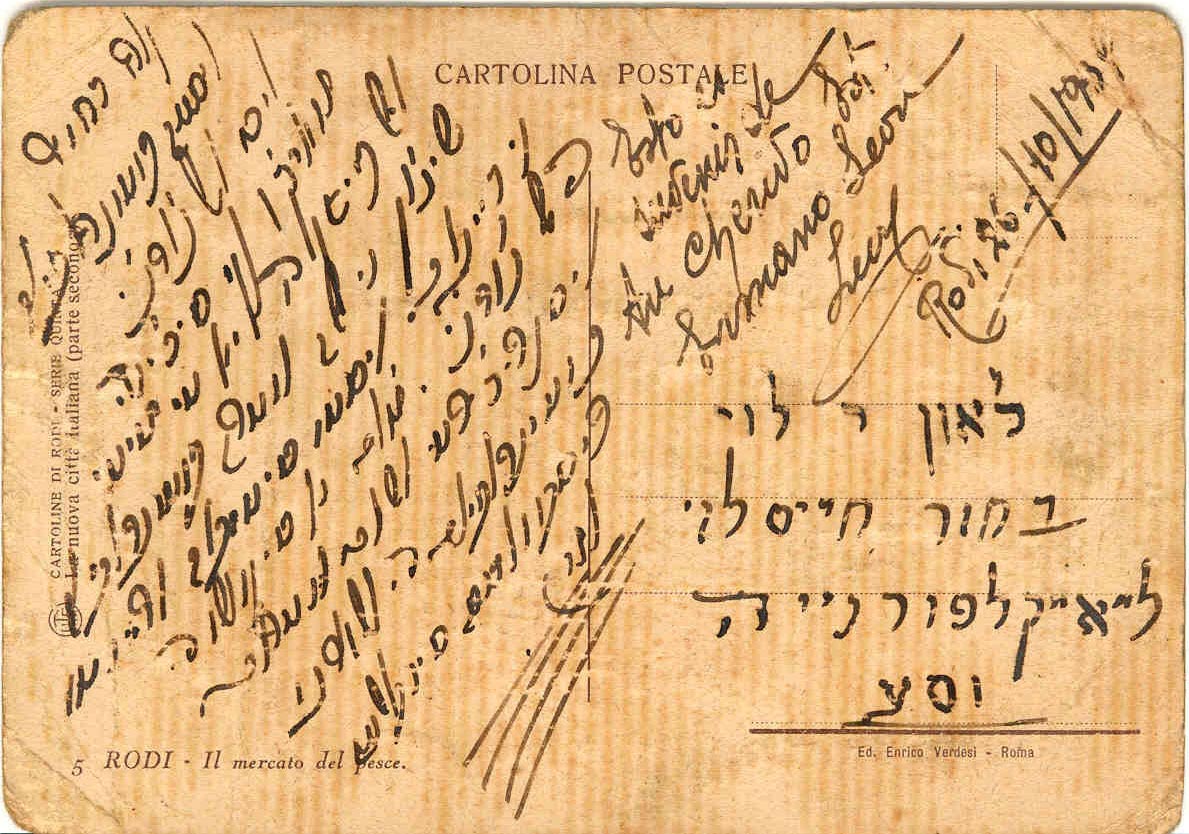Heritage and tradition – Language
They were two different languages that where spoken by the Jews of Rhodes:
The Yevanik language spoken by the Romaniotes, an early Jewish group that populated the area of Rhodes. Large communities of Romaniotes also existed in Ioannina, Thiba, Chalkida, Corfu, Arta, Corinth, as well as in the islands of Crete, Lesvos, Chios, Samos, and Cyprus.
Romaniotes populated Rhodes for almost two thousand years before the arrival of Sephardim. They spoke “Yevanik” a Jewish dialect of Greek that mixed Hebrew, Aramaic and Arabic. They used the Hebrew alphabet to write the Romaniote dialect. Yevanic is also known as Judæo-Greek, Romaniyot, Romaniote or Yevanitika. The name Yevanic comes from the Hebrew word Yāwān (Greece).
The small Romanian community no longer has survivors who seem to speak their language for the following reasons: The assimilation of the Romaniotes by the Spanish Sephardic Jews, attempts to assimilate them by the Greek, Turkish and Bulgarian authorities, the immigration of many Romaniotes, the ideology of Zionism, which preferred Hebrew as the only language of the Jews, and the death of many Romaniotes during the Holocaust.
Today’s Romaniotes speak only Modern Greek.
Example of Yevanik script
Transliteration
Ke itοn prοfitía Kiriu pros Iona iu Amitaï tu ipin: “Anásta, pοrevghu pros Ninve tin poli tin megháli ke dialálise epi aftin oti enevin i kakia aftin enopion mu.”
Translation
The word of the Lord came to Jonah the son of Amittai saying, “Arise, go to Nineveh the great city and cry against it, for their wickedness has come up before Me.”
Sample text provided by Michael Peter Füstumum
After the inquisition (1492) the Spanish Jews (Sephardim) who arrived in Greece, absorbed the few pre- existing Romaniots (Greek speaking Jews) who inhabited Rhodes and imposed their own dialect in their everyday interactions. The language of Sephardim was Judeo-Spanish, also called Ladino. A language based on the Castilian dialect combined with various implementations of Hebrew, Turkish and Greek words and phrases. The cursive script that they were using was in Judeo-Spanish, called Solitreo, from the Portuguese word solitrar, which means to spell, because the writer would spell phonetically or transcribe Judeo – Spanish into Hebrew letters. Although this Hebrew script sometimes is referred to as a Rashi script, when handwritten, it is more correctly referred to as Sephardic script. The language’s vivid nature is evident both in the verbal usage with the formation of proverbs and anecdotes as well as in the written form with the production of moral passages, biblical analytic texts and poems. The instruction of the ladino language in the community schools largely contributed to the safeguarding and preserving of the dialect throughout the ages.
Example of Sephardic script
Examples of commonly used Judeo-Spanish proverbs and idioms
“Sephardic Folk Dictionary”, English to Ladino – Ladino to English, by Albert Morris Passy , p.305-307








